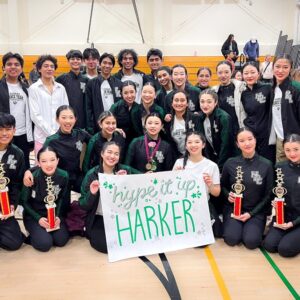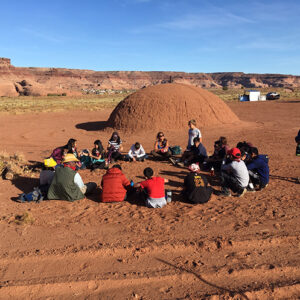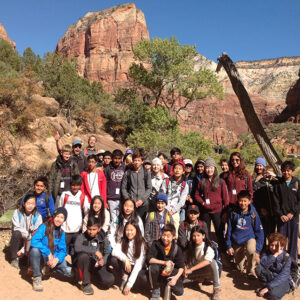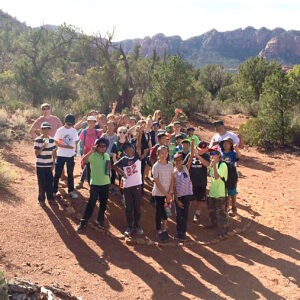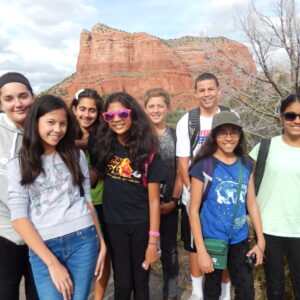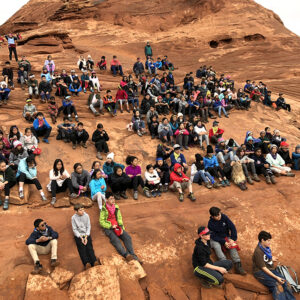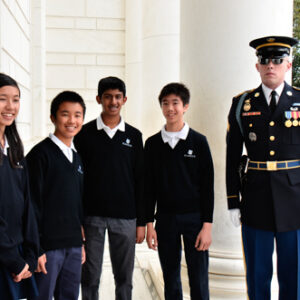The grade 7 national parks trip in late October saw The Harker School students and teachers traveling to some of the country’s most beautiful and historic places. Arriving in Arizona the morning of Oct. 23, the students and chaperones headed to Sedona, famous for its red rock formations. Some groups of students went on a jeep tour of the area, during which they learned about Sedona’s geology and wildlife. Later, they had dinner at Northern Arizona University.
After breakfast at NAU the next morning, everyone left for the south rim of the Grand Canyon. “The day could not have been more perfect,” said Lana Morrison, middle school dean of students, in a series of email reports. “People were seen from all over the world enjoying the incredible view of the Grand Canyon.” As they took in the vast panorama of the canyon, students hiked and jotted down notes in their journals.
The next day, in Monument Valley, located on the Arizona-Utah border, a wide variety of weather conditions greeted the travelers, including sun, rain, thunder, lightning and a sand storm. The group’s first activity was climbing the formation at Skull Rock. “In the beginning, some students seemed unsure of the climb, while others charged up the hill, which is made of red sandstone,” Morrison said. The students also heard stories about the Anasazi people, and climbed Honeymoon Arch. Next, they visited the Holaday family at the Moonlight Ranch, where they took part in the Navajo Cultural Program. “The members of the Holaday family traveled from three states to share their Navajo traditions with our Harker family,” Morrison wrote. Family leader Lorenz Holaday offered a traditional Navajo blessing to the travelers to conclude this portion of the trip.
On their way to Horseshoe Bend the next day, the rain cleared up just in time for some pictures to be taken. Later, at Glen Canyon Dam, they learned about the history of the hydroelectric dam, which produces 4.5 billion kilowatt hours each year. The group ate lunch and then drove to Utah’s Bryce Canyon, spotting snow on the way. At Bryce Canyon, they were met by Kevin Poe, ranger at Bryce Canyon National Park. “Ranger Poe discussed astronomy, global warming and the benefits of natural darkness and how to conserve sunlight energy,” Morrison wrote. At the Bryce Canyon visitor’s center, the students got to see several amazing celestial sights, such as Jupiter.
Activities at Bryce Canyon park continued the next day. The area’s famous hoodoos, rock spires formed by erosion, were a pleasant sight next to the light snowfall that the park had experienced a few days earlier. The group took hikes around several key areas of the canyon, such as the Navajo Loop. That evening, the bus groups each put on a skit for a special talent show. “It was extremely close,” Morrison wrote, “but congratulations, bus number two!”
The students spent the final day of the trip hiking through Zion National Park, which Morrison noted was similar in appearance to Yosemite. After their hike, the group headed to Las Vegas to catch their flight home.



